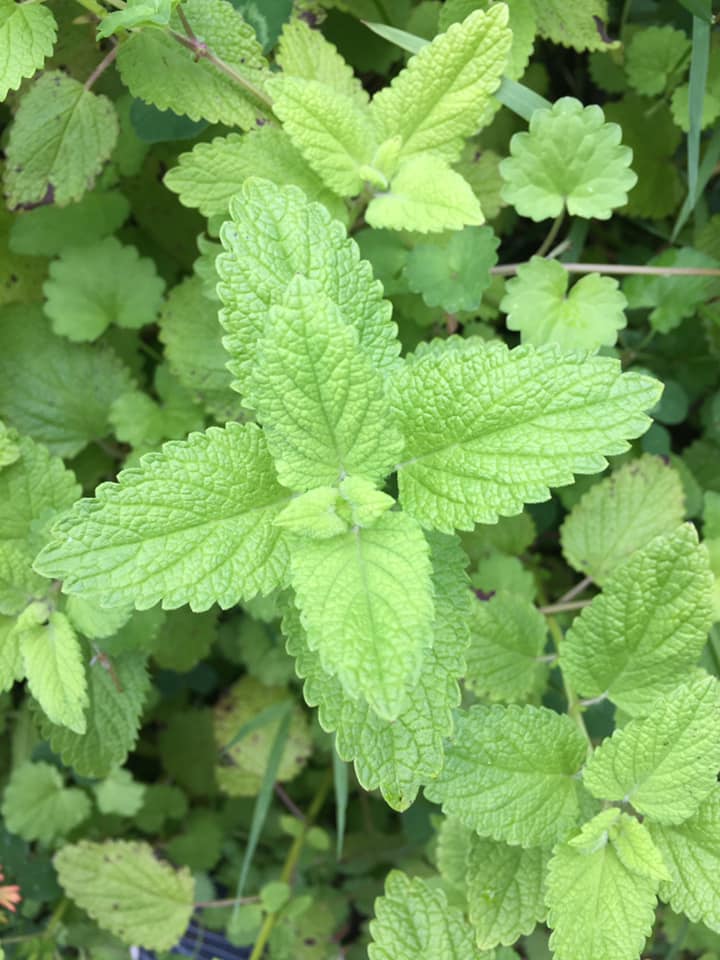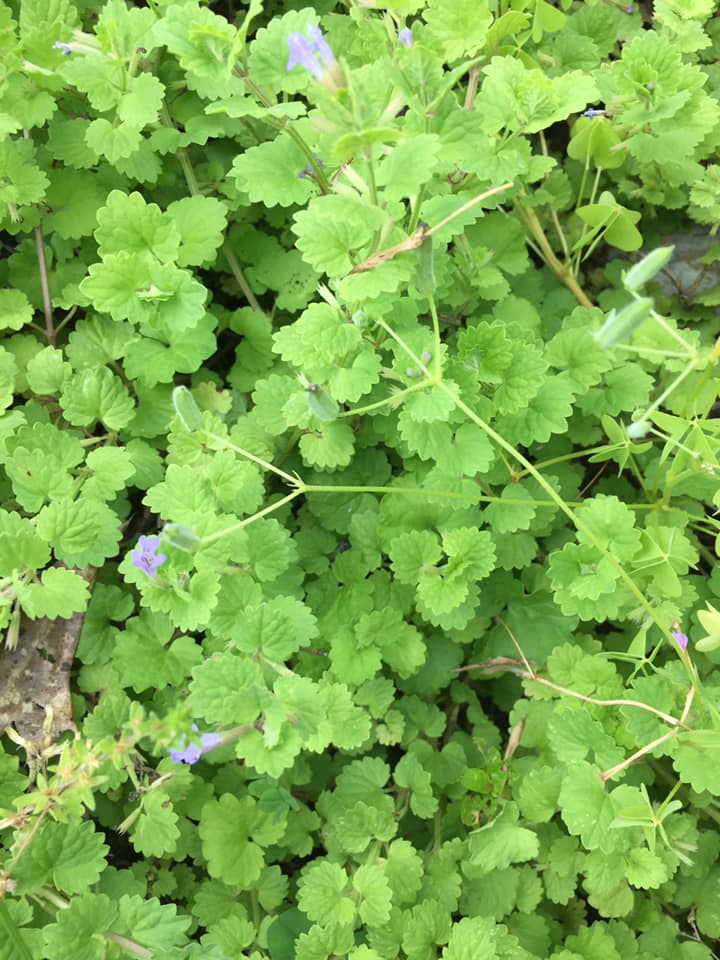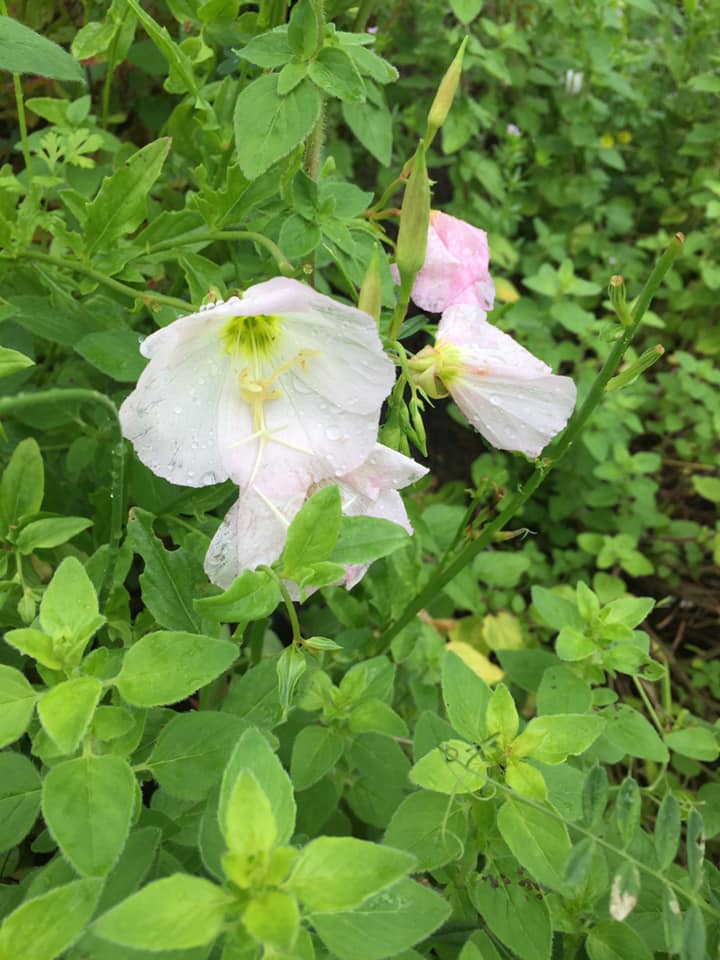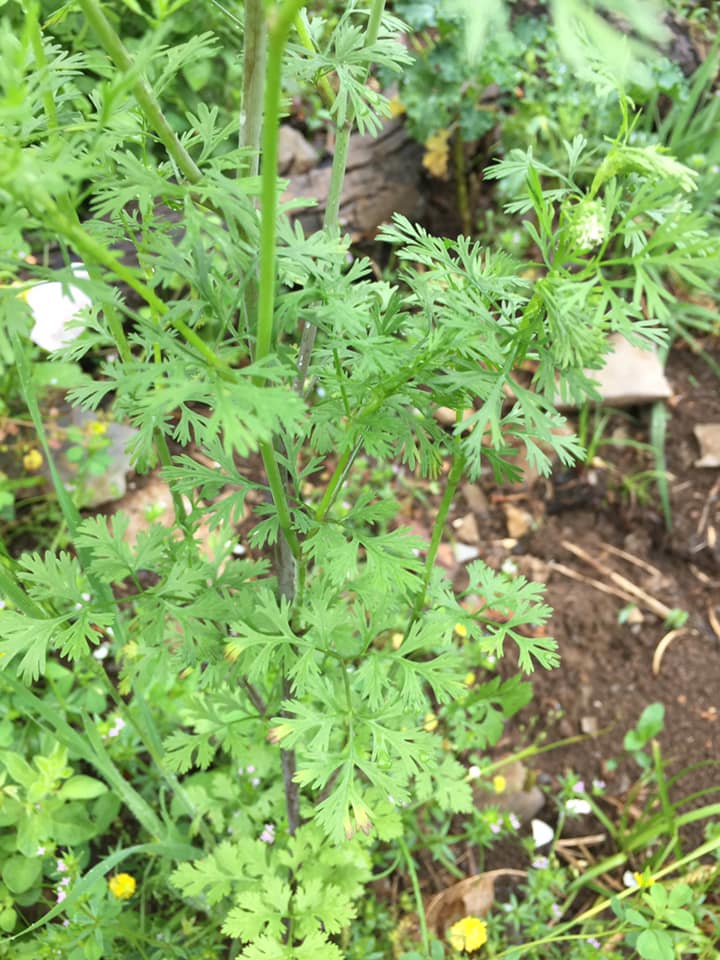I have been cataloging the edible and medicinal plants, trees and foliage on our property and using them more. Today, I made a yummy spinach salad using lemon balm, “Creeping Charlie,” white evening primrose, cilantro and oregano from our yard and garden. Topped with a homemade rosemary-olive oil / honey, garlic and herb dressing.
Dressing: I used some rosemary olive oil my son made for me at school, added local honey, minced garlic, basil, salt, pepper. Since I had the lemon balm, oregano and cilantro in the salad I didn’t need other herbs in my dressing. Just poured it over the top and let the fresh herbs add the flavor.
Lemon Balm

Lemon balm is a mint family member and grows practically anywhere, but it lacks the tendency of true mints to spread where they’re not wanted.
Medicinal value: antiviral, anti-anxiety
“Italian researchers found that lemon balm’s antiviral properties make it a great topical treatment for Herpes simplex virus type 2 (cold sores). Their study suggested the herb doesn’t stop the virus from entering the cells but fights it once it invades. This, they say, justifies the need for future clinical trials on the plant’s antiviral benefits.
There may even be a promising future for lemon balm in the treatment of Alzheimer’s disease. Published in the Journal of Neurology, Neurosurgery, and Psychiatry, researchers found that using a lemon balm extract over a period of 4 months showed a significantly better outcome than a placebo in boosting cognitive performance. The extract both improved cognitive function and reduced agitation that is normal in Alzheimer’s patients.”
Other Potential Benefits
- Insomnia treatment
- Digestive aid
- Anxiety
- Indigestion and heartburn
- Wound treatment
- Headaches
- Fever reducer
- Decreased congestion
- Cold sores
- Nervousness
- Bug Repellent – Here’s the Nerdy Farm Wife’s Lemon Balm Bug Spray recipe
Source Document: NaturalSociety.com
Creeping Charlie

Creeping Charlie – Glechoma hederacea (syn. Nepeta glechoma Benth., Nepeta hederacea (L.) Trevir.) is an aromatic, perennial, evergreen creeper of the mint family Lamiaceae. It is commonly known as ground-ivy, gill-over-the-ground, creeping charlie, alehoof, tunhoof, catsfoot, field balm, and run-away-robin.
Glechoma hederacea has been used in the traditional medicine of Europe going back thousands of years: Galen recommends the plant to treat inflammation of the eyes. John Gerard, an English herbalist, recommended it to treat tinnitus, as well as a “diuretic, astringent, tonic and gentle stimulant. Useful in kidney diseases and for indigestion.” It has also been used as a “lung herb.” Its presence as an invasive weed in North America is the result of the value placed on it by European settlers as a medicinal herb and ale preservative; the species was imported and widely cultivated in herb and kitchen gardens.
Other traditional uses include as an expectorant, astringent, and to treat bronchitis.
In the traditional Austrian medicine the herb has been prescribed for internal application as salad or tea for the treatment of a variety of different conditions including disorders associated with the liver and bile, gastrointestinal tract, respiratory tract, kidneys and urinary tract, fever, and flu.” Source Document: Wikipedia
Ground ivy (aka Creeping Charlie) should not be used if you have liver or kidney trouble, are epileptic, or if you are nursing or pregnant, because it contains very small amounts of pulegone. Its high amounts of vitamin C may also interact with blood thinning drugs, such as Warfarin. Use in small amounts.
White Evening Primrose (Oenothera speciosa)

Oenothera speciosa
Good for dry and inflamed tissues, especially lung or other delicate mucous membranes. Evening Primrose Oil has also been observed by some to clear up acne. Source: Wiki.MedicinalPlants-uses.com
“Modern herbalists use the herb and the oil from its seeds, which is a source of GLA (gamma-linolenic acid), to treat eczema and other skin conditions (Foster 2006). Research suggests that evening primrose oil (EPO) may help prevent and treat diabetic neuropathy, as the oil is high in GLA and linoleic acid, which are both important components of nerve cell membranes.
EPO may be an effective treatment for patients suffering from atopic dermatitis. A recent study of 53 patients found EPO significantly better than placebo in reducing the severity of atopic dermatitis.”

- Cancer-fighting
- Reducing pain and inflammation
- Skin health
- Antifungal properties
- Natural preservative
“Cilantro might help remove metals such as mercury, lead, and aluminum from the body. Removing these metals from the body might help some antibiotics and antiviral medicines work better. Cilantro might also help eliminate certain bacteria that cause infections.”

Oregano
People around the Mediterranean region have used oregano for centuries in herbal medicine to treat many ailments, including:
- skins sores
- aching muscles
- asthma
- cramping
- diarrhea
- indigestion
- colds
- to boost overall health
